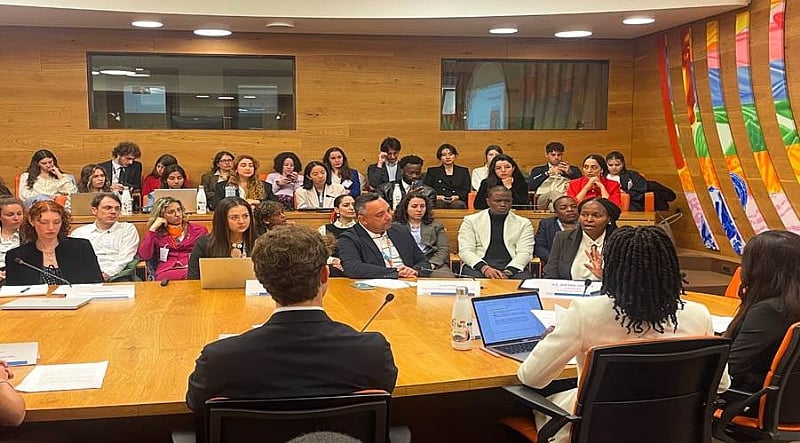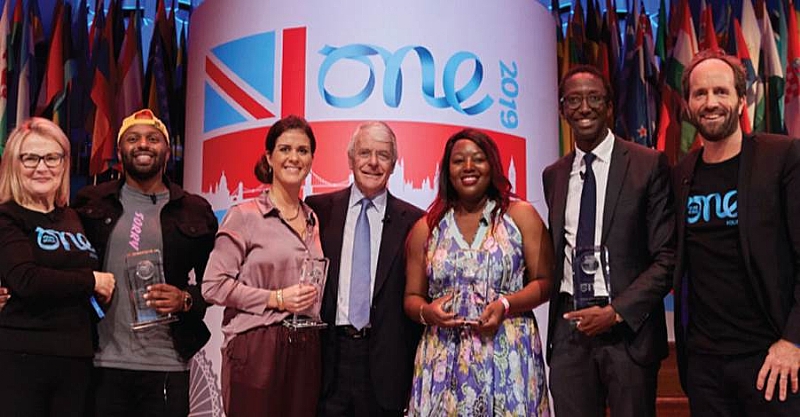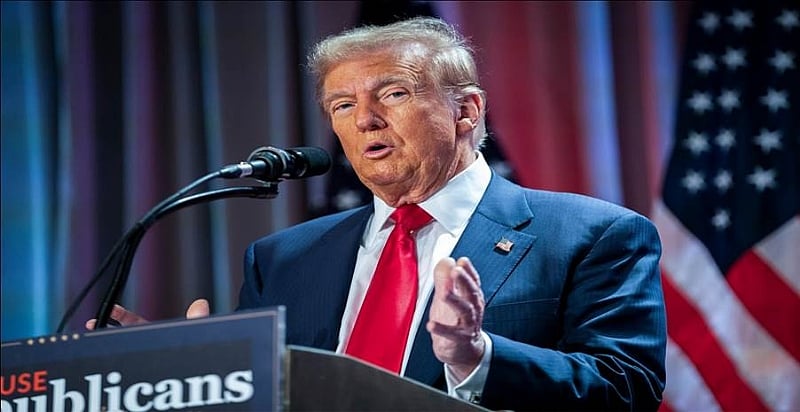In recent years, the youth rallying “not-too-young-to-run” mantra has all but become a global advocacy campaign for the participation in politics and governance of young adults, aged between 18 and 40. The idea had been rooted in the understanding that youth participation in governance was not only a human rights issue, it had become a necessity in our rapidly evolving world. Yet, the dream of seeing dynamic young aspirants take the mantle of leadership remained largely unrealized. Despite formal legislative support in some countries like Nigeria that had to amend their constitution and lower the age for running for public office, there is still a preeminent dominance of aged politicians, often in their 70s and 80s, in most parts of the world. This lingering grip on power by the older generation unveils a complex dilemma that deserves a critical examination from its root.
In traditional societies, for example, respect for older people was embedded in the culture of many communities as a cornerstone of social organization. Youths were taught to honour older persons, not because of wealth, but because of their age, their wisdom, and the life experiences they must have passed through. This reverence often translated into trust in leadership and a willingness to learn from the elders. In today’s world, however, economic success has become the primary yardstick for measuring respect. Wealth now commands more respect than conventional wisdom. Consequently, even in public gatherings, young people tend to ignore or dismiss older individuals who are not visibly wealthy or influential.
This shift in values has, unfortunately, created a new type of generational distrust. The older generation now fears that if political power is transferred to the young adults, it could lead to their marginalization. This fear is not faked. It is real. In many social settings today, it is the young adults who now dominate conversations, trends, and even community decisions, sometimes silencing or sidelining the elderly. Such experiences tend to fuel a deep-seated apprehension in the older generation that if the young adults gain full control of governance, they could lack the empathy or desire to protect the interests of the elderly, especially in societies where welfare systems for the aged are weak or non-existent.
The idea had gradually taken shape when the median age in many countries, especially in Africa and Asia was considered important and necessary in their demography. In a country like Nigeria, the median age is 18 years. In Ghana the median age is 21. In India, it is 29. In the UK, it is 40. In the US, it is 38.5 years. In Canada, it is 41.7. In Australia, it is 38.8 years and in South Africa, it is 27 years. The median age is the age that divides a population into two equal halves so that half of the people are younger than the median age and the other half are older. In a country like Nigeria where the median age is 18, this means that 50% of the population is younger than 18 years, and 50% is older than 18 years.

The future in the making
In essence, the “not-too-young-to-run” slogan was grounded in the belief that the vibrancy, vision, and dynamism of young people could be applied in governance to transform leadership and bring fresh energy into the corridors of power. Across Africa, Asia, Europe and America, this mantra inspired countless young men and women to step forward with courage to contest for public offices. However, despite its popularity in many countries, the actual penetration of young leaders into meaningful governance roles remained minimal. The political landscape in many countries continued to be dominated by politicians in their seventies and eighties. This disparity has now brought to the fore, this dilemma that is more complex than it appears at the surface.
To a very significant extent, one of the most enduring obstacles to the full realization of leadership by young adults lies in that subtle, yet deeply rooted, fear of many elders who are politically active. This fear is not simply about age or experience: it is about survival and relevance. For many in the older generation, leadership is not just a position but an identity that has defined their lives for decades. A genuine concern of these elderly persons that should not be neglected any more is that the rising influence of young people may come at the expense of the dignity and well-being of the elderly. In traditional societies, age comes with reverence. Older people are viewed as custodians of wisdom, and their advice is sought with humility. The community protects them, listens to them, and ensures that they are not left behind in the unfolding tide of change.
Today, however, those traditional values are eroding rapidly. Increasingly, modern societies no longer measure respect by age or wisdom, but by wealth and influence. It is common to see a successful young entrepreneur commanding more public respect than a seasoned elder who may have spent a lifetime in community service. This shift in community values has, as it were, now triggered a silent fear among many older citizens and leaders that when the young adults eventually take charge, the same disregard they observe socially might extend into policy. This fear becomes even more pronounced in developing nations, where welfare systems are either absent or inefficient. With no guaranteed healthcare facility, no housing programme, no social support in retirement, many elderly individuals feel safest clinging to power or remaining politically relevant, not necessarily out of greed, but out of a need for protection and survival.

Global young politicians
That fear, as we now know, is not entirely unfounded. The younger generation, in their quest for change, often approached leadership with an impatience that bordered on intolerance. They would seek to replace the old, sometimes with little or no regard for historical continuity. Their aggressive demand for their own space and relevance are sometimes interpreted by the older generation as a threat, especially when it lacks the courtesy or respect that traditional African or Asian societies associate with age. In some cases, young activists have dismissed all elders as corrupt or obsolete, failing to recognize that among them are patriots and nation-builders whose contributions formed the very foundation upon which the young adults now stand.
This tension has ultimately created a paradox: the old are unwilling to let go of power for fear of being forgotten or discarded, while the young grow increasingly frustrated with a political system that offers them no room to grow. It has become the case of a classic intergenerational dilemma that must be resolved not through confrontation but through conversation, mutual understanding, and institutional reform.
For the “not-too-young-to-run” mantra to truly take root, it must be framed not as a battle cry against the elderly or the young adults, but as a plea for partnership between two generations. Young people must demonstrate, through their words and behaviour, that they are not seeking to discard the elderly, but to work alongside them in building a more inclusive future. Their political manifestos should include concrete plans for elders’ care which should include affordable healthcare, social housing, pension reform, and cultural programmes that keep older citizens engaged and respected. Beyond the policy, young leaders must intentionally involve elders in their advisory councils, benefit from their wisdom, and ensure that transitions in leadership are not seen as defeats, but as dignified handovers.
Elders, on their part, must begin to see political leadership not as a lifetime entitlement, but as a trust to be handed down to the generation after them. Just as parents prepare inheritance for their children, they must also prepare political space for the younger generation. There is a moral imperative here that cannot be ignored. And that is, that it is fundamentally wrong for us, parents, to vie for opportunities with our children. Whether in business, education, or politics, each generation must make way for the next. No society progresses when its elders remain perpetually at the helm while its youths remain despondent at the gate.
The pathway forward lies in mutual respect and structured mentorship. Elders must embrace the role of guardians of tradition and mentors of vision, while the youths must approach leadership with humility, clarity, and a sense of continuity. In doing so, our communities can enjoy the best of both worlds: the energy and agility of youth and the wisdom and resilience of age.
The “not-too-young-to-run” mantra must therefore evolve beyond a slogan into a shared philosophy of inclusive governance. The fear of neglect in old age is real, and it deserves sincere acknowledgment and strategic reassurance. But that fear should not be allowed to stifle the dreams of the young or stall the progress of a nation. In the delicate balance between caution and courage lies the future of every generation. And in that future, there must be room enough for everyone.


